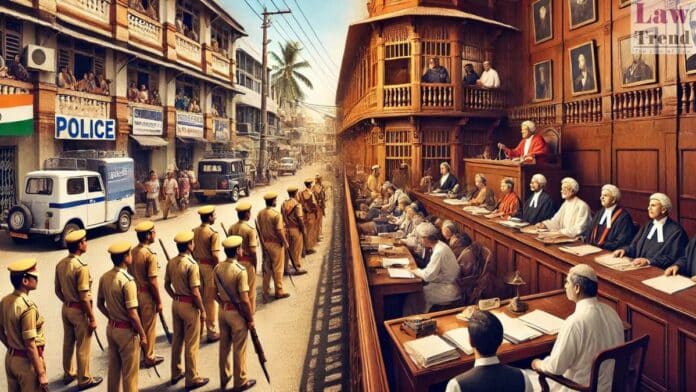In a significant ruling, the Kerala High Court has held that the police have no authority to intervene in civil disputes concerning property matters. The court quashed two notices issued by the Lakshadweep Administration, which directed a resident to remove an alleged encroachment, stating that such matters fall strictly within the domain of civil courts.
To Read More Please Subscribe to VIP Membership for Unlimited Access to All the Articles, Download Available Copies of Judgments/Order, Acess to Central/State Bare Acts, Advertisement Free Content, Access to More than 4000 Legal Drafts( Readymade Editable Formats of Suits, Petitions, Writs, Legal Notices, Divorce Petitions, 138 Notices, Bail Applications etc.) in Hindi and English.




